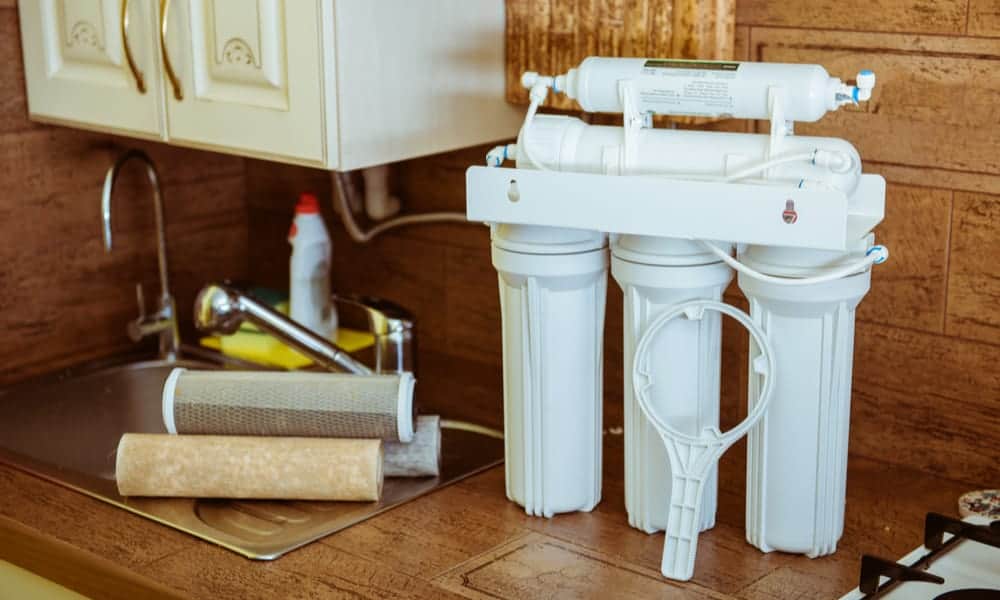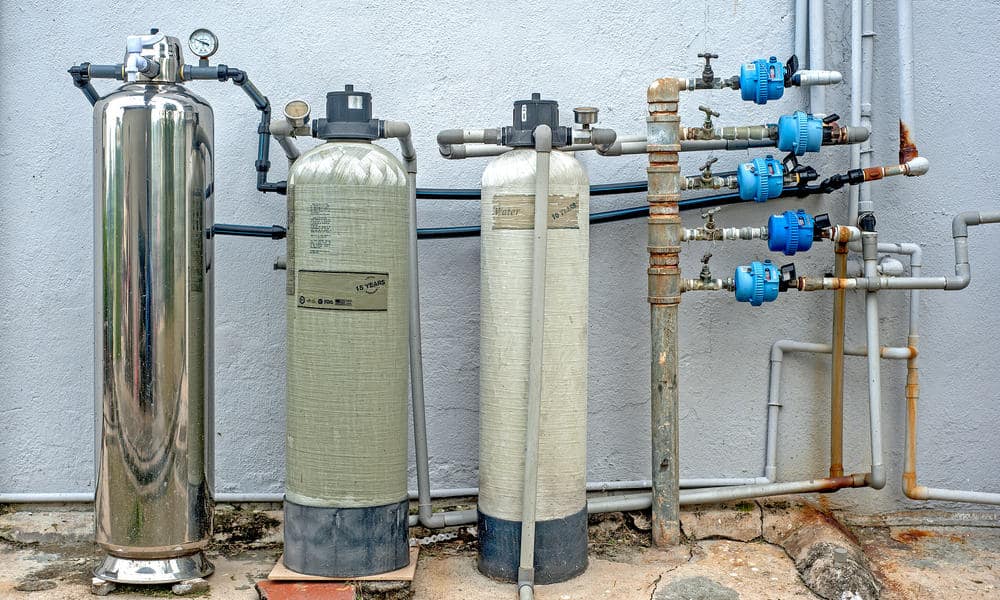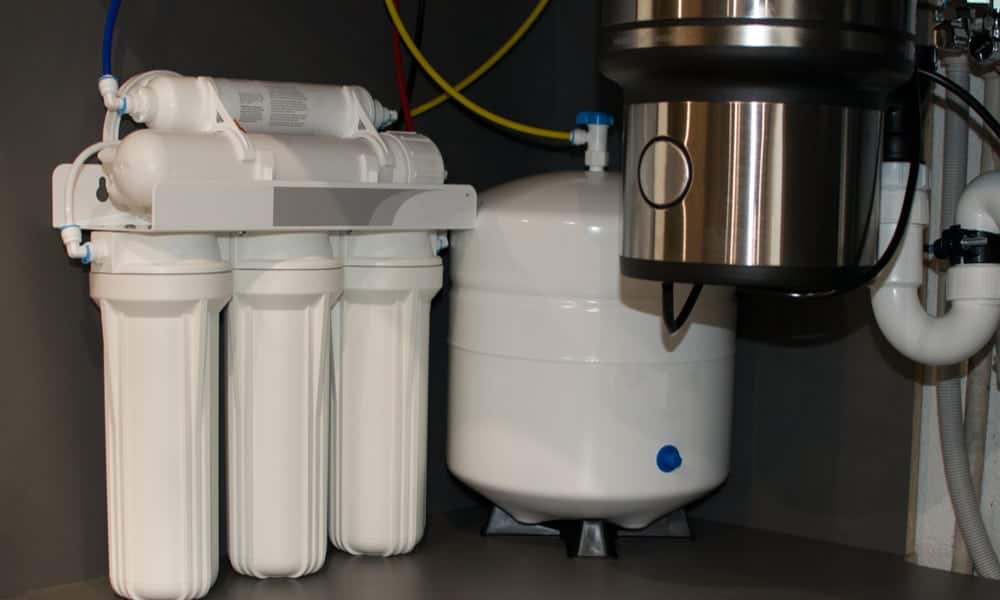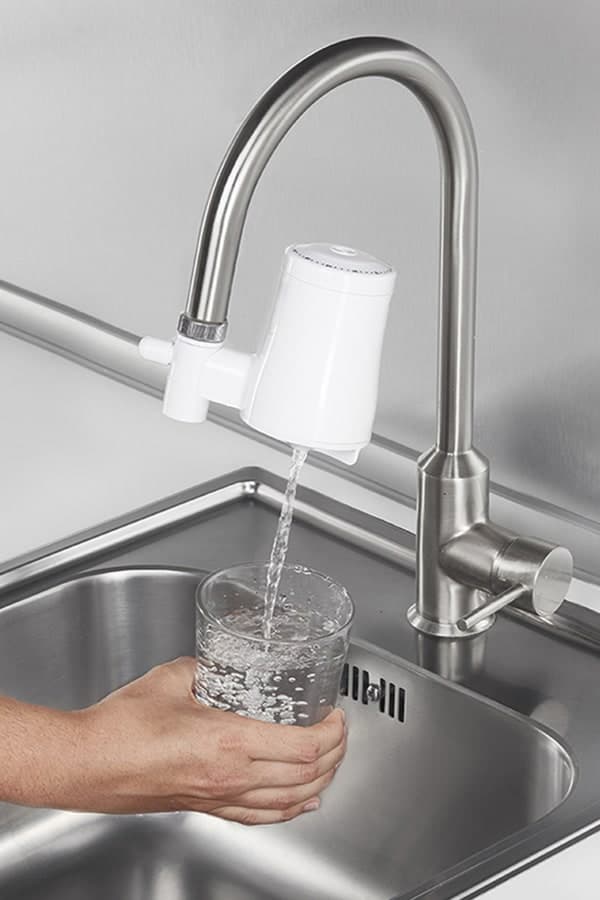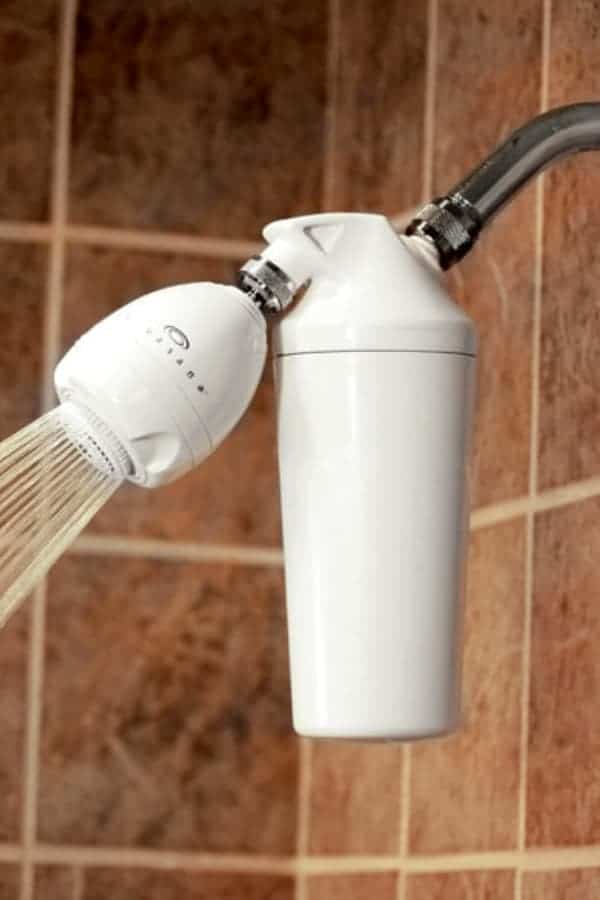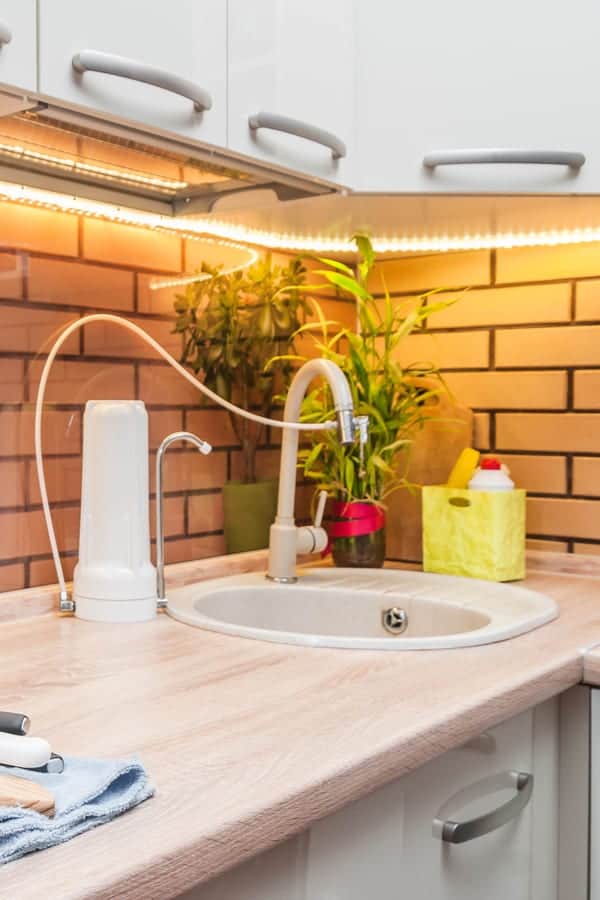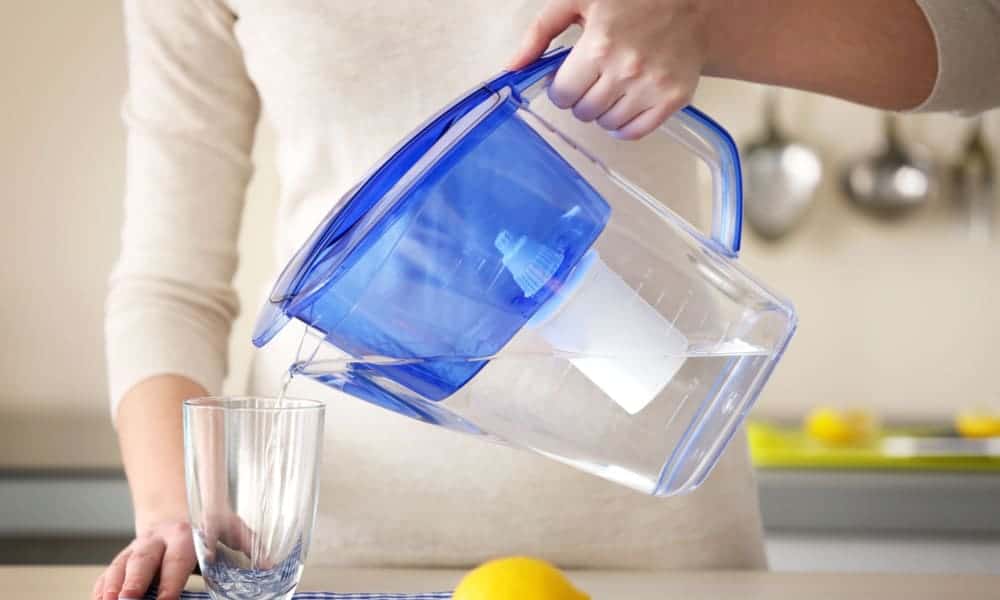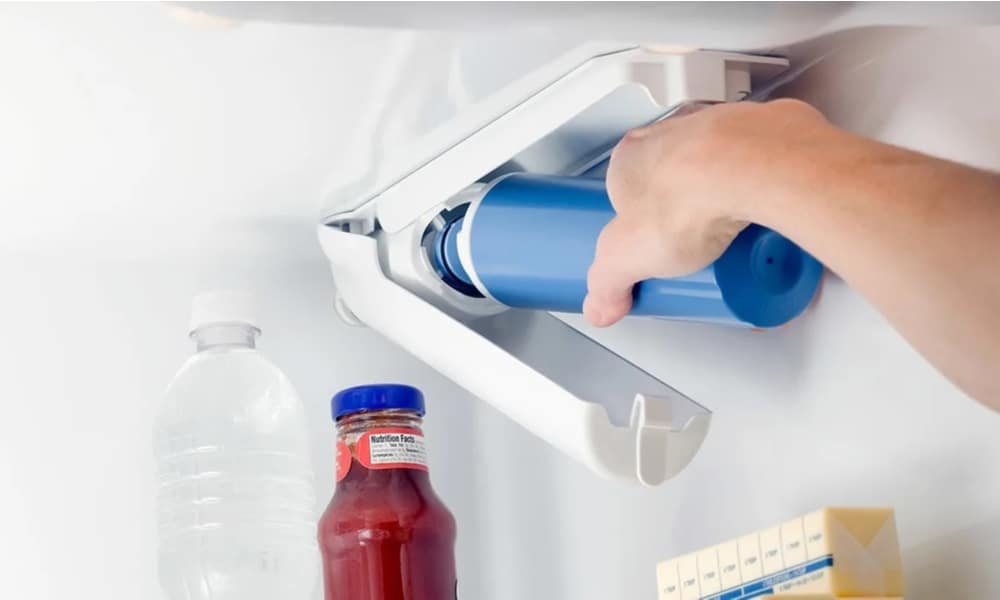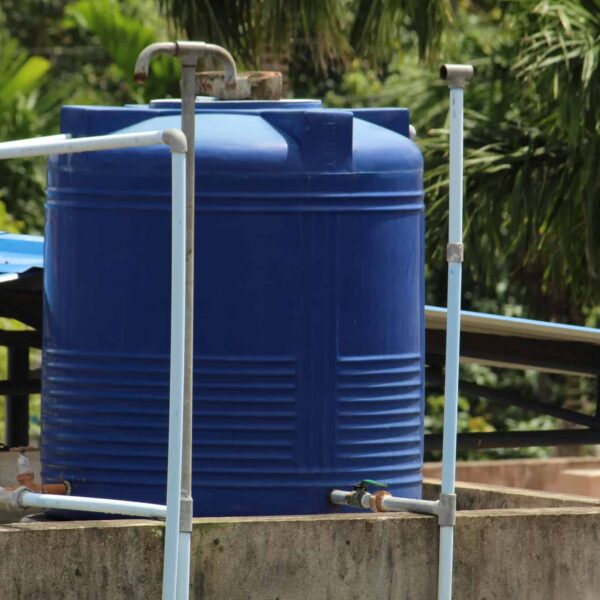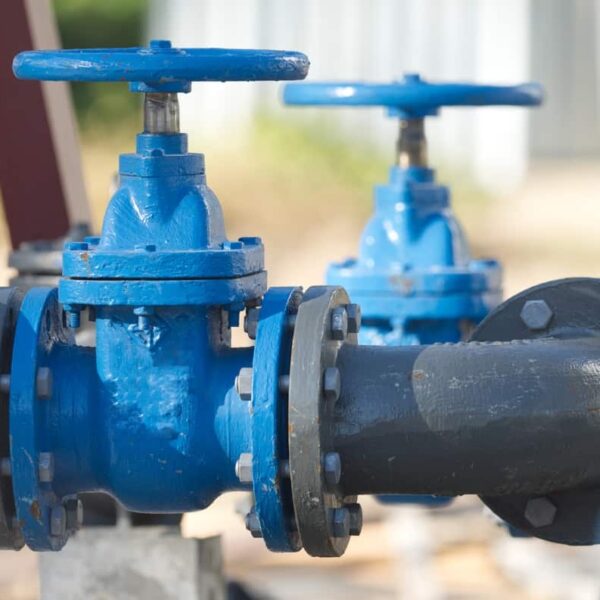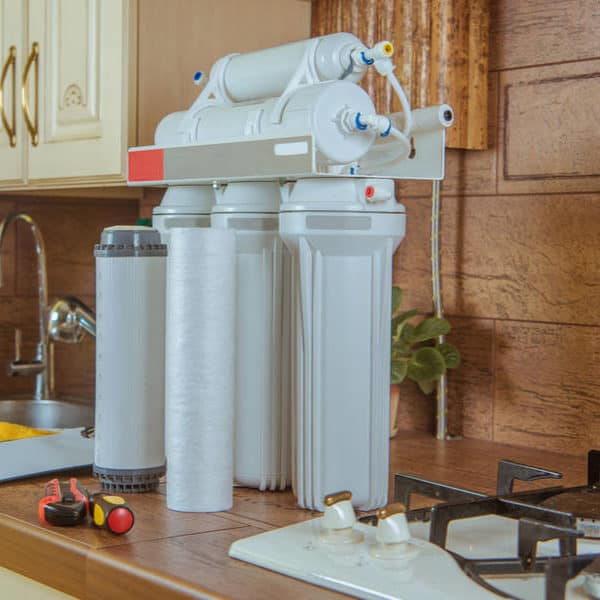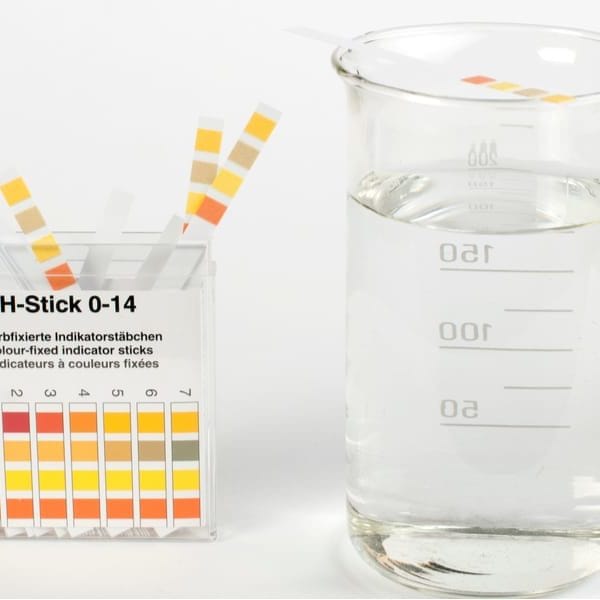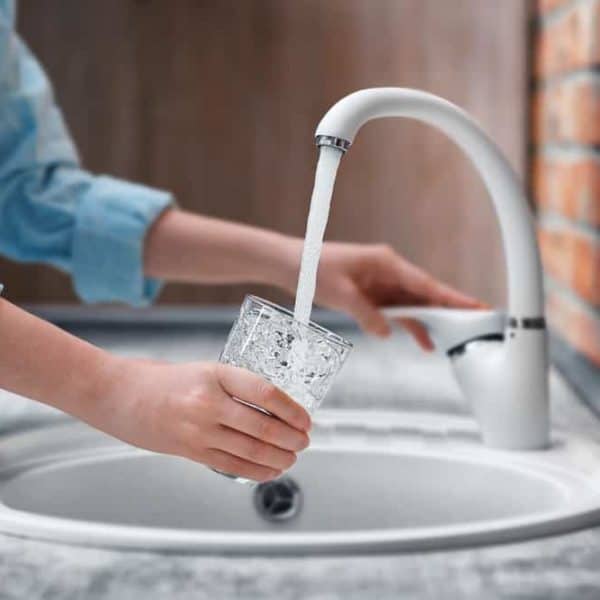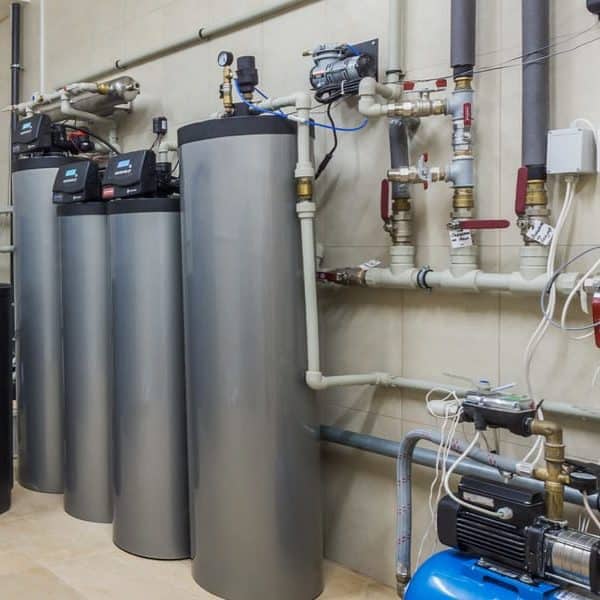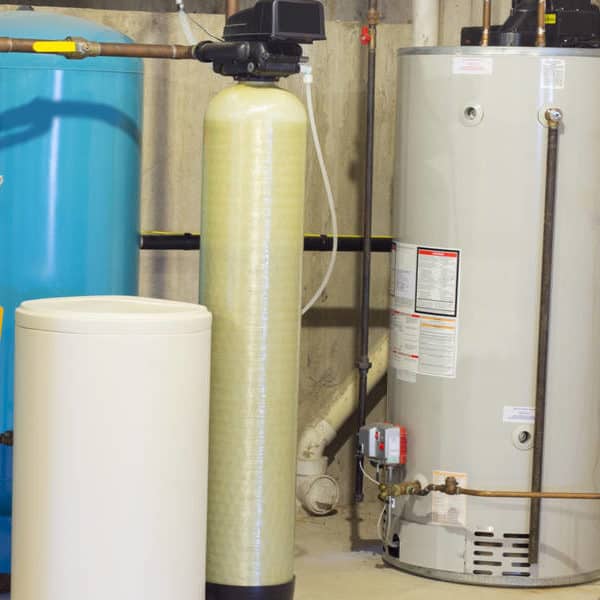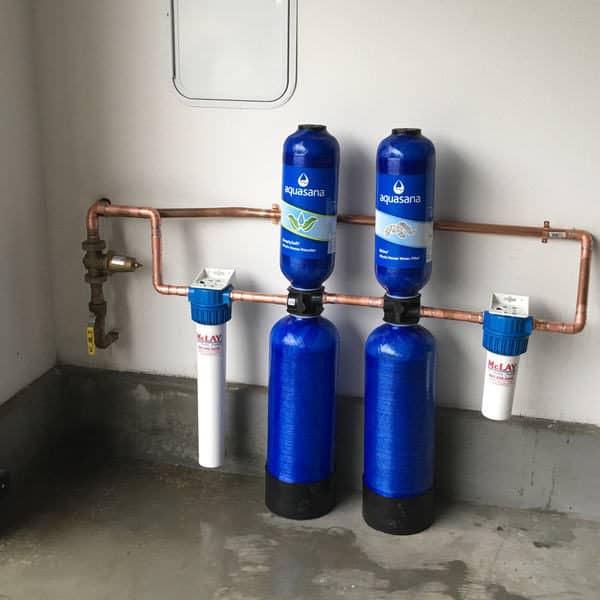There are two crucial things you need to consider before buying a water filtration system for your home. Firstly, you should get your water tested to see if you need a filter at all.
After that, you will have a hard time picking out the right option among various models available on the market. Which one will suit you the most depends on the tap water variety, type of contaminants, as well as your taste. Let’s see the 7 water filter types for residential use.
Types of Water Filters for Residential Use
1. Whole house water filter
You should pick out a whole house water filter if you live in a house without tap water. If you install it right at the water tank and connect to the primary pipe, this system will purify the water before entering the house.
Pros
- Since you will place it at the main pipe, there is no need to attach additional filters directly on taps
- It effectively removes a wide range of contaminants, including chlorine, chemicals, and sediment
- If you add ultraviolet light to the system, it will prevent the growth of microorganisms, as well
- It is cost-effective in the long run
Cons
- You will need professional help to install the system
- It is an expensive solution
2. Under sink water filter
Under sink water filter is a reliable but quite expensive system for removing bacteria and numerous pollutants. You can install it under the kitchen sink and attach it directly to the water-line. Since it is quite large, you should avoid moving it around. On the other side, it can process an immense amount of water quite fast.
Pros
- Since it is a large device, it can treat a lot of water within a short time
- You can place it under the sink and make it invisible
- It is an excellent choice when you need to filter a different kind of contaminants
- The unit requires little maintenance
Cons
- That kind of filter is quite expensive
- You will need professional help with installation
3. Faucet water filter
You can install this filter directly on the faucet when you need to remove the impurities from the water right before using it. Since it relies on activated charcoal, it is an excellent choice for reducing chlorine and lead in water. Plus, you can expect it to improve the taste and smell of tap water, but the crucial thing is that water is not highly contaminated.
Pros
- It is a reliable, small, and cheap device
- You don’t need to fill it with water constantly
- Since it is easy to install, you can do it by yourself
Cons
- Unfortunately, it will slow the flow down notably
- Be aware that it probably won’t work with the low faucet
- It can’t destroy microorganisms
- You need to replace the filter after every 100 gallons (378.5 l) of purified water
4. Showerhead filter
It is a quite similar device to the faucet filter you can install directly on the showerhead. That way, you can use filtered water while taking a shower. It is an excellent option for you if you live in the region with the water containing high levels of chlorine, chloramines, and fluoride.
Pros
- You can enjoy smooth skin and shiny hair thanks to this particular filter removing simple contaminants from water
- Some contemporary showerheads come with the filter
- It is an inexpensive product
- You can install it by yourself
Cons
- You will have an issue with the slow flow
5. Countertop water filter
If you don’t want to fill and empty a pitcher continually, you can pick out a countertop water filter to purify your tap water. It will start with cleaning water as soon as you turn on the faucet. By using this particular device, you will get water free of chlorine, mercury, lead, and cysts. It will also reduce the number of bacteria.
Pros
- It is a small device, which starts filtering water immediately after you turn on the tap
- You will get fast filtration at an affordable price
- It is easy to use
Cons
- Even though this model is small, it still takes up space on your countertop, which is inconvenient if that part of your kitchen is narrow
6. Water filter pitcher
Since the water filter pitcher is cheap, reliable, and portable, it is probably the most common type of filter for water purification you can find on the market. There are two parts to the carbon filter. When you pour water through the first filter filled with activated carbon, you will get the clean water in the low part of the tank.
You can use it to filter tap water or take the system with you when going camping and use it outdoors. Unfortunately, its capacity is limited.
Pros
- That portable filter is easy to use
- It removes most minerals and chemicals from water
- It improves the taste of water
- The system is cheap
Cons
- The capacity of the system is low
- It is a quite slow method of obtaining clean water
7. Refrigerator water filter
Modern refrigerators often come with a built-in filter. It reduces the level of lead, chlorine, chemicals, and organic compounds in water. It is an excellent option for you if you prefer getting filtered water straight from your fridge without filling a pitcher.
Pros
- Most modern refrigerators have a built-in filter
- It improves the taste of water and produces ice cubes from filtered water
- You can also choose a model of a fridge with a water filter for making ice
- It is easy to use
Cons
- You need to replace the filter regularly
Best Water Filtration Methods
You should choose the most appropriate water filtration method. The best solution for your home will depend on the type of impurities you need to remove.
Reverse osmosis
Reverse osmosis system moves water through a semi-permeable membrane to stop harmful molecules larger than water. Keep in mind that it needs far more water than it produces.
Activated carbon
During the process of purification, carbon bonds water particles through a chemical reaction. It improves the taste and odor of water by removing chlorine. This method is useless in removing arsenic, nitrates, and fluoride.
Granulated carbon
It is a filter that uses small grains of carbon for filtering the water. However, it is not highly efficient due to its small surface area.
Carbon block
These block-shaped filters have a large surface and, consequently, excellent sediment-holding capacity. Water speed will highly influence its effectiveness.
Water softening
It replaces calcium and magnesium in drinking water with sodium during ion exchange. Avoid this method if you have high blood pressure since the water you get after filtration is full of sodium.
Activated alumina
You should use it if you have water contaminated with arsenic, fluoride, and selenium. It is a standard part of cheaper domestic filters but has a limited lifespan.
Distillation
Even though using water distiller is one of the oldest methods of water purification, many people still choose this reliable way to clean their water. In general, it is a process of vaporizing water by heating to high temperatures and removing microorganisms and minerals, having a high boiling point. However, you can’t get rid of chlorine this way.
Deionization
It is a method, which promotes ion exchange and removes salts from water. Unfortunately, it is not an option for eliminating viruses and bacteria.
Ionizer
Keep in mind that this device often has on-board water filters, but it is not primarily designed to be a water filter. Without the significant capacity to remove the broad range of impurities or long-term health benefits, this expensive method is not suitable for home use.
Ozone
Most customers combine this method with others because ozone kills microorganisms effectively, but can’t remove chemicals.
Ceramic
It is a reliable, cheap solution lasting for years. Its pores will stop impurities larger than their size. If you purchase the model treated with silver, you will get a filter killing bacteria and preventing mold, as well.
Mechanical
You should pick out this method if you need to remove sediments and cysts from water. Unfortunately, if your water contains chemical contaminants, it is not a useful option for you.
Ultraviolet
It is an excellent, contemporary eco-friendly option for removing viruses and bacteria from drinking water by using ultraviolet light of different frequencies. Unfortunately, this method is expensive. Plus, you may have difficulties to purchase necessary equipment since it is not a commonly used system for cleaning the water.
Infrared
It is a great solution for softening drinking water if you live in a region with a hard one. It uses light and heat to charge your water negatively and make it soft.
Conclusion
Water filters are a necessity in the contemporary world. Depending on the model you choose, they remove or reduce contamination by a chemical or a biological process, as well as a physical barrier.
Thanks to these convenient and reliable devices, you will get clean water without pesticides, viruses, bacteria, and various industrial run-offs. Get your water tested, determine your needs, and pick out the best filter for your home.
